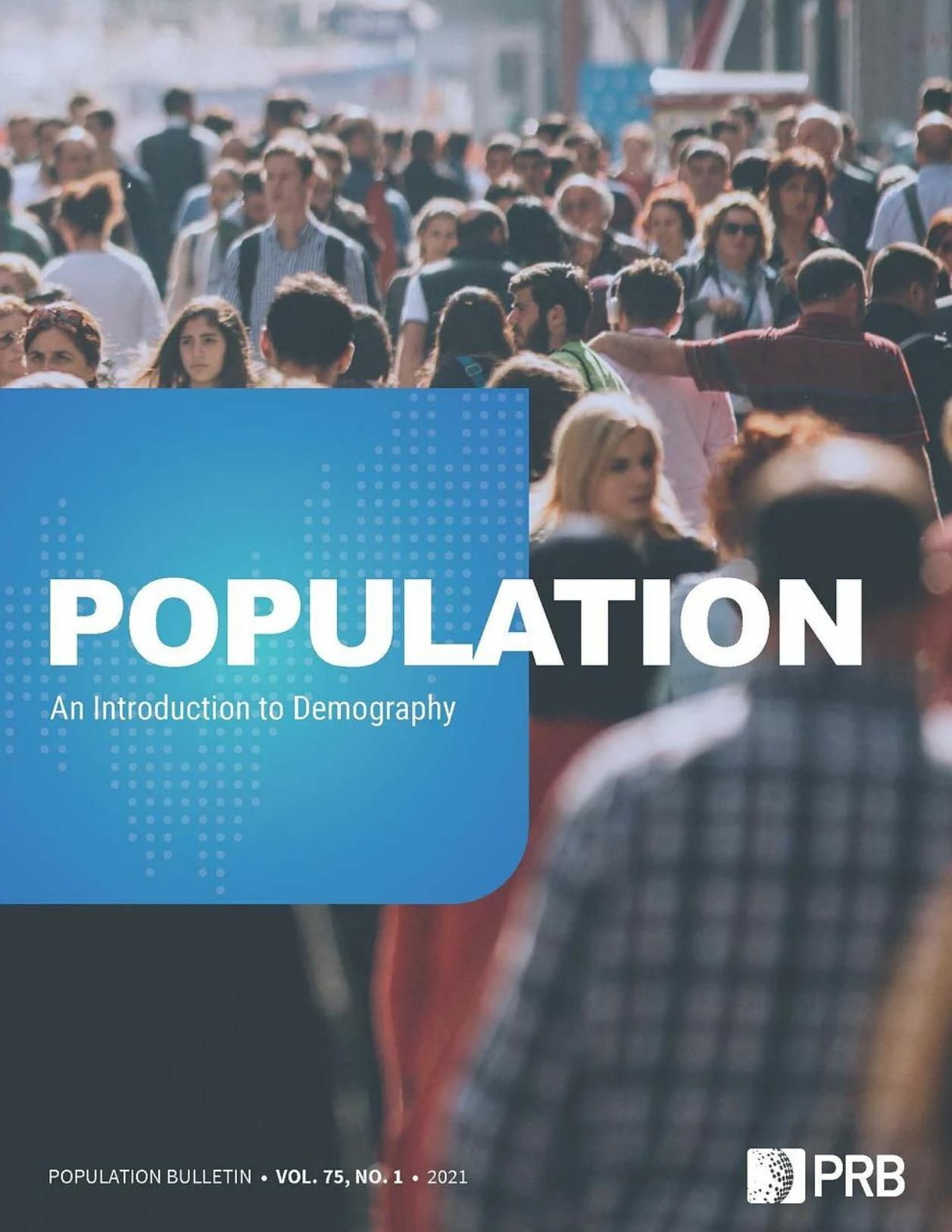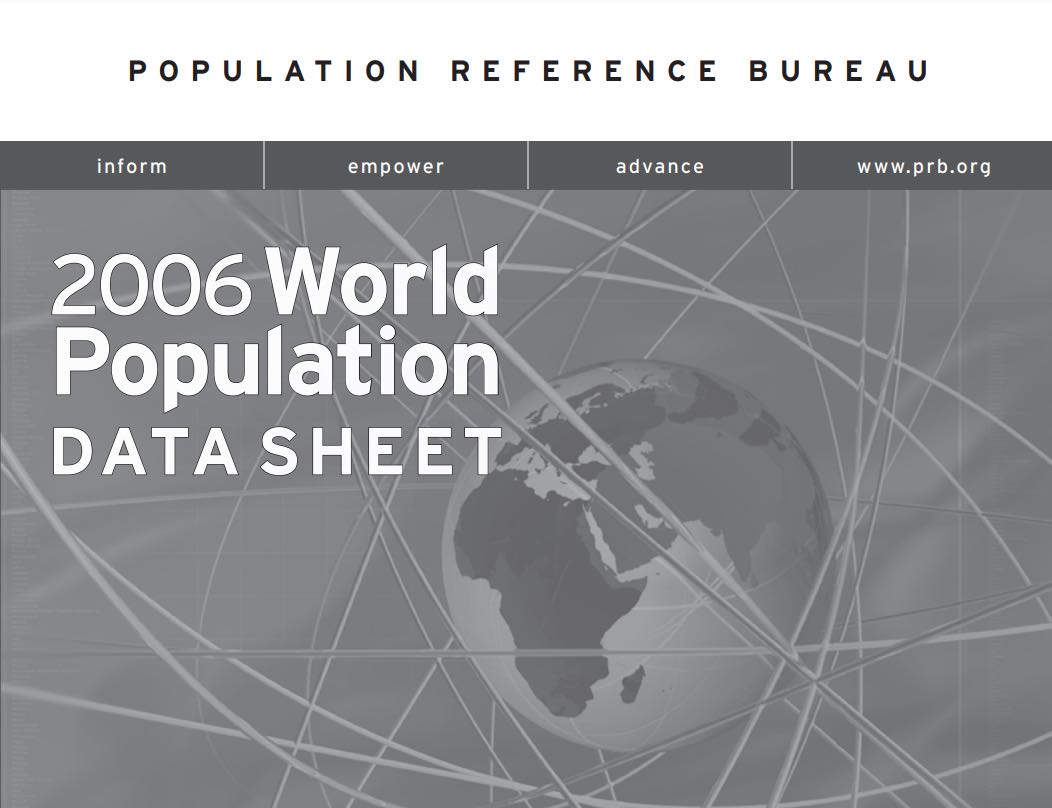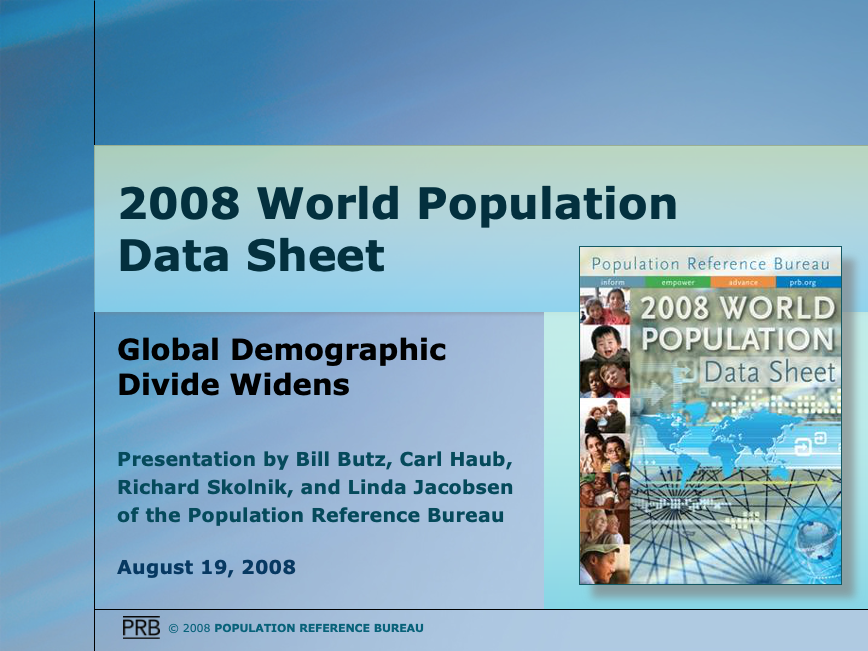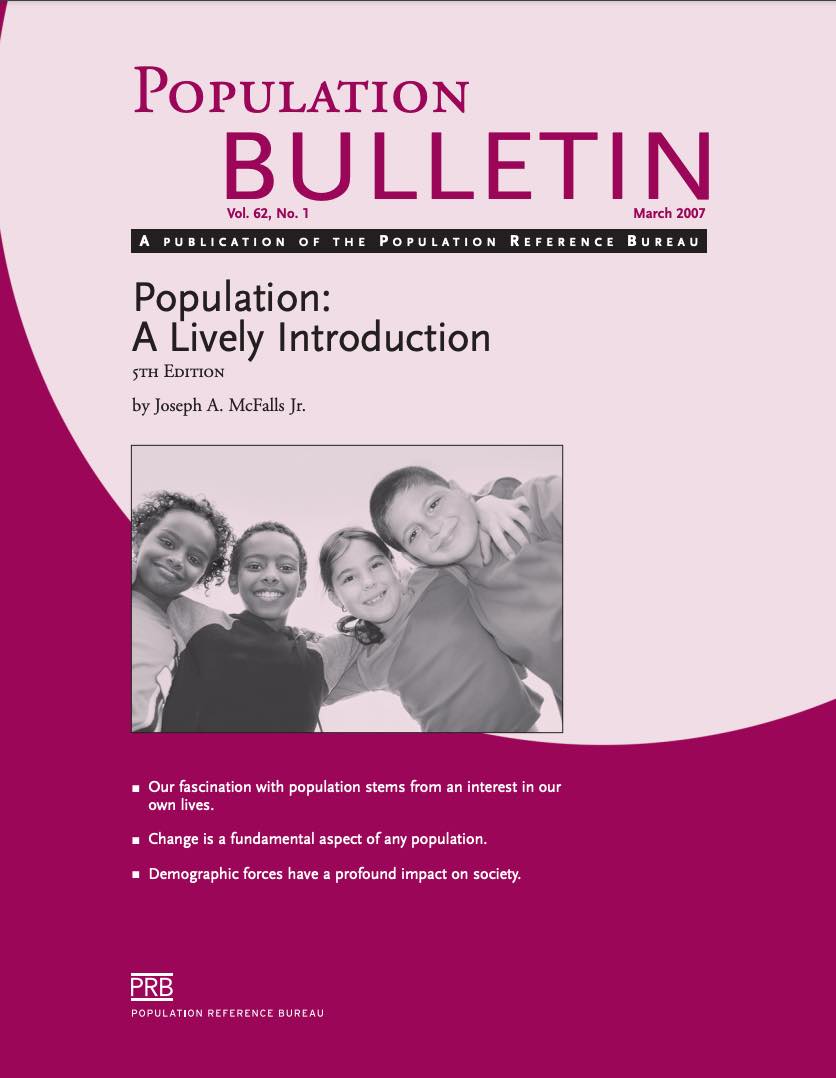Population Bulletin vol 75. no.1 : An Introduction to Demography
PRB’s latest Population Bulletin provides a basic understanding of demography and demographic processes, including fertility, mortality, and migration, and their effects on the world.

PRB’s latest Population Bulletin provides a basic understanding of demography and demographic processes, including fertility, mortality, and migration, and their effects on the world.
People are living longer and having fewer children, but the impact of this differs among nations.
As people around the world celebrate the remarkable Paris Agreement to address climate change, there’s a genuine opportunity for countries to act on their financial pledges to help the world adapt to climate change—especially people in developing countries who are most vulnerable.


(2008) The demographic divide—the inequality in the population and health profiles of rich and poor countries—is widening.
HIV/AIDS emerged in the late 20th century. Believed to have originated in Africa, the disease has spread worldwide. Occurrence of HIV/AIDS and primary means of diffusion vary among regions. Because of the social and economic impacts of this disease, students should have a good understanding of the patterns and processes that define the spread of the disease.

(2007)When where you born? How many brothers and sisters did you have? Where did your ancestors live? How long will you live?
Enhancing research and policy communication in population, reproductive health, and economic development.